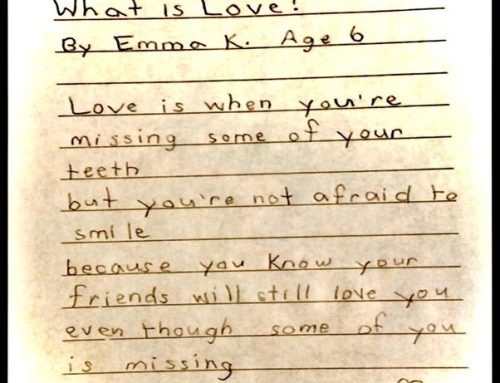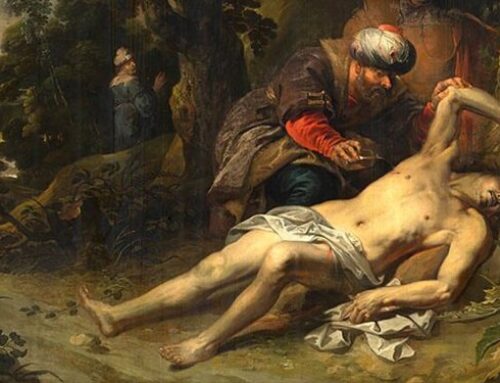The Return of the Prodigal Son: Where is Our Focus?
April 26, 2019
Categories: Love
One of my favorite books is “The Return of the Prodigal Son” by Henri Nouwen. In the book, Nouwen discusses the parable of The Prodigal Son (Luke 15:11-32), and he also walks the reader through his reflections on the painting, “The Return of the Prodigal Son” by Rembrandt.
Focus on the Self
I had read through the parable many times before, but one thing I realized after reading through this book is how an unhealthy focus on the self, both in the younger son and the older son, keeps each of them stuck.
The Younger Son
The younger son is focused on himself early in the story, when he demands his share of his father’s inheritance and squanders it on wild living. But even near the end of the story, when he “comes to his senses,” the younger son still struggles with a focus on himself. He struggles to forgive himself and move on. He comes up with a plan to present himself as one of his father’s “hired hands.” He wants to negotiate and “make up” for what he has done.
The Older Son
The older son is also focused on himself. When the father throws a party to celebrate the younger son’s return, the older son refuses to join. He becomes jealous and angry, comparing his situation to his brother’s. He is critical, thinks he has been treated unfairly, and can’t understand his father’s compassion toward his brother. It is as if the older brother has kept a tally of his own good behavior and his rewards, and can’t deal with a situation in which he doesn’t “come out ahead.”
Focus on the Other
There is a sharp contrast between the focus on the self in both the younger and older son, and the focus on the other in the father. The father reaches out with love and compassion to both the younger and older son. While the younger son was still a long ways off, the father rushes out to greet him. The father interrupts the younger son’s explanations, and preemptively grants him grace, forgiveness, and love. Not only does the father forgive the younger son, but the father also reinstates the younger son as son by giving him a ring for his finger and sandals for his feet. The father desires to give the younger son good things, and sets a huge celebration in motion.
The father also reaches out with love and compassion toward the older son. When the father realizes the older son is not at the celebration, the father searches for the older son and finds him waiting outside at a distance. The father pleads with the older son to join the party. The father tries to reach through the older son’s comparisons, reassuring him that “everything the father has is his.” The father tries to reach through the older son’s anger, showing his love and compassion and inviting the older son to join the celebration. In a way, the father is inviting the older son to joy.
Living with Wisdom
Nouwen describes the father he sees in Rembrandt’s painting as old and blind. One gets the feeling the father has lived and seen quite a lot in his long years, and has gained wisdom. No longer is the father consumed with selfishness and claiming what is “rightfully his.” No longer is the father burdened with the self-focused emotions of guilt and shame from making mistakes and not living up to the expectations he set for himself. He has been able to let that go. Also, no longer does the father spend precious hours comparing himself and his situation to others. No longer does the father let his anger and hurt from the past separate him from those he loves. No longer does the father let perceived injustices hold him back from love, compassion, and joy.
So often I see myself as the younger son, either selfishly claiming what is “mine” or feeling constantly burdened and unable to let go of the mistakes I have made. And I also often see myself as the older son, comparing myself to others and letting my anger and critical spirit keep me from joy. But I think the key lesson here is to move toward the place of living like the father. Wisdom and many years of living life have allowed him to drop his unhealthy focus on the self and move toward a place of being able to fully engage others with love, compassion, and joy.
Discussion
When you read the story of the Prodigal Son, which character do you most closely identify with? Why?

Related Thoughts
No Comments
Leave A Comment

Subscribe To My Newsletter
Join my mailing list to receive the latest blog posts.
Receive my e-book “The Mental Health Toolkit” for free when you subscribe.






[…] Jesus connects divine forgiveness with interpersonal forgiveness (Mt 6:12, 14-15). Second, in the parable of the Prodigal Son (Lk 15:11-32), forgiveness is a central theme. The father’s forgiveness of the younger son paints […]